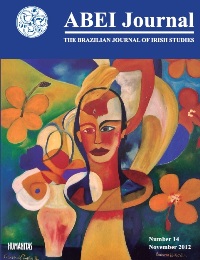Elizabeth Bowen’s Ireland? Film, Gender and the Depiction of 1960s Ireland
DOI:
https://doi.org/10.37389/abei.v14i0.3615Resumo
At the start of Ireland’s transformational decade of 1960s, the American network CBS contacted Padraig O’Hanrahan, the Director of the Irish Information Bureau in Dublin. They were interested in gaining government assistance for a program being planned for its popular television series The Twentieth Century. The episode envisioned would address social, political, economic, and cultural developments in the country and provide an accurate portrayal of everyday life in Ireland. The Dublin government readily agreed but was unaware that the Irish novelist Elizabeth Bowen, a writer with very distinct cultural and political prejudices, had been hired to write the script for the program. The narrative of the film produced by Elizabeth Bowen is revealing as it allows the viewer a unique perspective into a society undergoing
significant change. The film addresses a wide array of issues including the evolving role of women in Irish society at the start of a decade characterized by rapid change. What at first may seem like a rather awkward American effort to ‘capture’ the real Ireland, warts and all, was a more complex effort, strongly influenced by a remarkable Irish writer. The program is also revealing as it deeply upset an Irish Government concerned about its image and desperate to present itself in the words of Taoiseach Sean Lemass as ‘a progressive nation seeking efficiency’.
Referências
Bowen, Elizabeth. Transcript of “The Tear and the Smile.” Elizabeth Bowen Papers, University of Texas, Austin.
Fallon, Brian. An Age of Innocence, Irish Culture 1930-1960. Dublin: Gill & Macmillan, 1998.
Garvin, Tom. Preventing the Future, Why was Ireland so poor for so long? Dublin: Gill & Macmillan, 2004.
National Archive of Ireland (NAI) Department of the Taoiseach (DT) S16882, O’Hanrahan to Kleinerman, 5 July1960.


